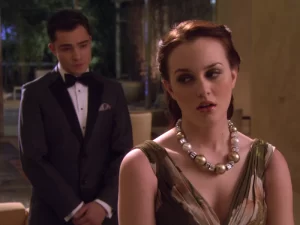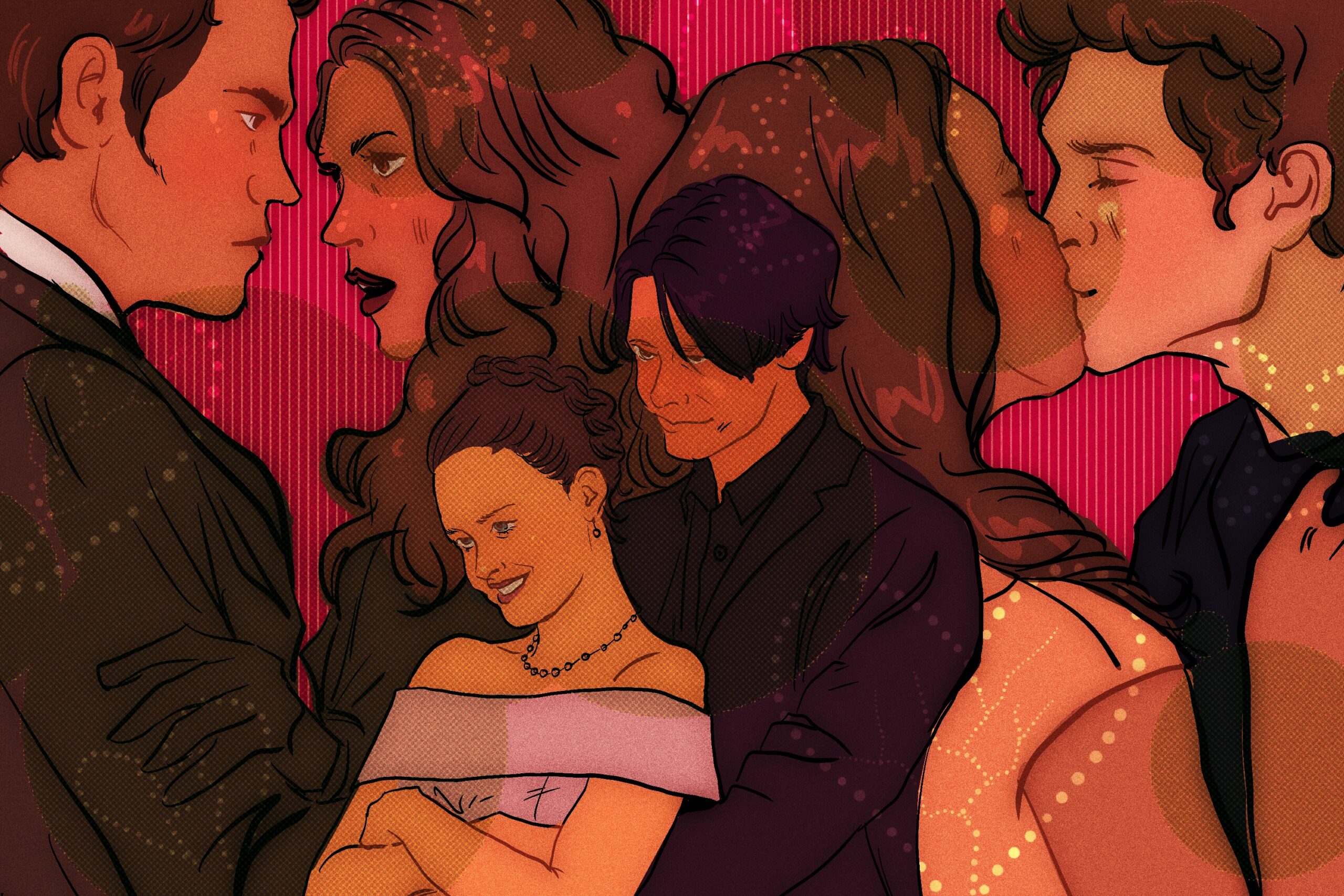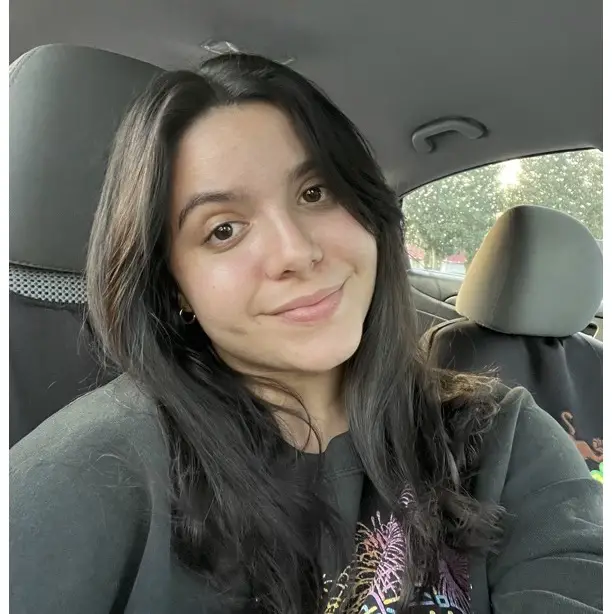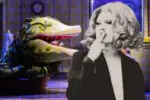There was something in the air during the mid-2000s. It was a time before streaming, when households still had cable and people crowded around their televisions on Thursday nights. Networks cranked out primetime teen romances with a terrifying regularity.
Many of the most popular TV show couples were crafted in an age before social justice was at the forefront of people’s minds. These shows took place prior to the #MeToo movement, before we as a country started seriously considering power dynamics and their implications. As a result, much of what aired would never make it off the cutting room floor today.
When you’re a kid, it’s easy to idolize what works well for TV dramas: the fighting, the making up—all of that sounds incredibly romantic when you’re 13 and have never even had a boyfriend.
But as we grow up, we realize that there is no fun in unhealthy and cyclical relationships.
One of the worst traits of these TV couples is their inability to break free of these toxic cycles. What was marketed as a “will-they-won’t-they” dynamic 10 years ago would today be considered harassment and abuse.
It’s time we hold some of the most popular TV couple “icons” accountable.
Aria and Ezra (“Pretty Little Liars”)

Let’s start by tackling one of television’s biggest missteps. How did millions of fans tune in every week to root for this illegal couple to get their happy ending? Aria and Ezra were beloved in their heyday and often touted as a perfect TV show couple. Now, their entire relationship just seems creepy.
In the show, Ezra is Aria’s high school English teacher who unwittingly hooks up with her before realizing she is his student. What follows is a “love story” that spans the entirety of the show’s run, with both characters being called the other’s soulmate.
It is revealed in a later season that Ezra knew Aria was a high school student before they hooked up because he specifically spied on her. While the nature of their relationship was already rife with issues, the revelation of his harassment and stalkery makes the dynamic ten times worse. Aria isn’t an equal in this relationship—she’s a victim.
Aria does have agency, but she is still underage, and no amount of “apologies” from Ezra will change that.
The show even results in the couple’s marriage, with no real attempt on the creator’s part to have Aria grapple with the circumstances that led her to Ezra.( In fact, he planned the entire thing as a ruse to get to Ali, Aria’s friend). Instead, Ezra is depicted as a romantic hero who never truly has to deal with the consequences of his actions.
Now what kind of message does that put out into the universe? That you can take advantage of women and get away with it? Yikes. If studies conducted on the social effects of shows are any indication, Ezra and Aria are not the TV show couple to be inspired by.
Damon and Elena (“The Vampire Diaries”)

This one hurts. I myself was a massive fan of Damon Salvatore and Elena Gilbert. But even actress Nina Dobrev, who played Elena, acknowledged the toxic nature of this couple.
“It’s sort of like a hot and cold relationship that they have,” said Dobrev.
At the start of the show, Damon and Elena are a vampire and human girl, respectively. The latter is at the heart of a love triangle between two immortals who are both over one hundred years old. Even if we ignore that can of worms, the show often forces Elena to excuse the behavior of vampires because she loves them. Damon hypnotizes her with his vampire compulsion powers, sexually abuses one of her best friends, and kills her brother. These are just some of the highlights.
But as the moral center of the show, Elena is in a tough spot. Rather than have her engage in healthy attachment styles or hold Damon truly accountable, the writers paint her as a willing participant and accessory to many of these crimes.
The show tries to have the characters reconcile the flaws in their relationship with the love they clearly have for each other. There’s a scene where Elena is furious once again at Damon for lying and murdering during their relationship (don’t you just hate it when that happens?). In response, he tells her he’s not good for her.
The creators of the show indirectly address Damon and Elena’s problems. Yet they are still an example of a problematic TV show couple we’ve been made to idolize instead of critique. Despite admitting to each other that they do bad things when together, the couple succumbs once again to their feelings and hooks up immediately after what could almost be considered a breakthrough for the two.
Any headway made toward calling out the toxicity of their relationship is erased almost immediately by this creative choice. Damon later undergoes a redemption arc, but how much of that should we allow?
If we’re being real, it doesn’t matter how ‘good’ a morally gray character becomes. No hundred-year-old vampire ever has any business dating a teenage girl.
Chuck and Blair (“Gossip Girl”)

Oh look, another TV show couple that normalized abuse as a love language.
Chuck Bass and Blair Waldorf may just take the cake for the most hate-to-love couple on our list. There was mutual mistreatment between these two, and yet no love lost. More than the other examples listed, “Gossip Girl” thrived off of toxicity.
Network television tried to convince us that we should want the love these two had. Their relationship was marked by constant breakups, cheating, scandal, and abuse. Chuck verbally abuses Blair countless times, telling her he doesn’t love her and that she’s lost all “value” to him because she’s no longer beautiful. He sleeps with her enemy, Jenny Humphrey, as revenge. He spills the sordid details of their sex life to the titular gossip site, publicly humiliating Blair. If this guy was real, I would be running for the hills.
Blair isn’t innocent, either. She uses other men to make Chuck jealous, cheats on her boyfriend with him, and belittles Chuck whenever he gets close to being emotionally vulnerable with her. Neither of these two deserved to be in any sort of relationship, and yet that’s why they were so appealing. Fans thought they were perfect together because they brought out the worst in each other.
Maybe the couple could have had some comeuppance for either of the two. But you know the drill by now. They get married off and all is forgiven.
In reality, both of them probably needed a restraining order.
The Verdict
No primetime drama ever made its name off of morals and integrity. What sells is sex, drama, and lies. This is still true today, and can be seen in shows like “Riverdale” and “Euphoria.” But if television is going to continue depicting these relationships, there needs to be careful consideration given to the implications of these portrayals. While there’s no concrete formula that perfects this balancing act, some shows do walk the line successfully between illustrating toxicity and holding it accountable, like “Teen Wolf” or “One Tree Hill.”
As long as there is some subtle social commentary at play, the Will-They-Won’t-They TV couple has a place in the present space. The true danger lies in letting these early TV show couples stay worshiped with no modern examination. If there’s any hope for love now, we need to learn from the past, and not relive it.

















